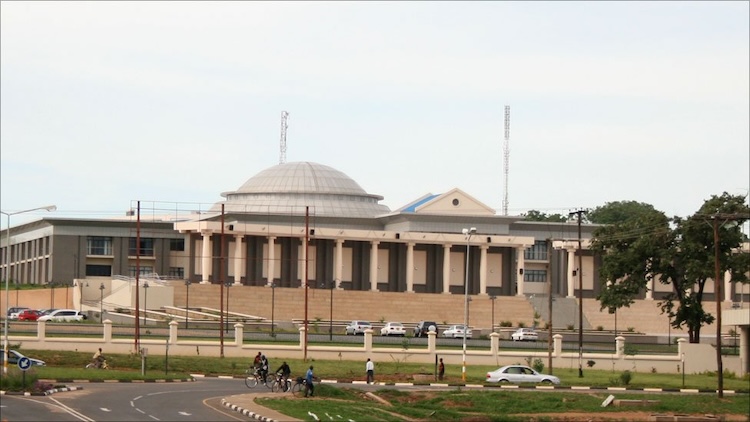By Joseph Kayira
LILONGWE, Malawi | 11 August 2025 (IDN) — With Malawi’s general elections set for 16 September 2025, the stakes are high. Political parties, the Malawi Electoral Commission (MEC), and civic bodies are racing to maintain the electoral calendar, ensure voter participation, and safeguard democratic integrity. But amid rising political tension in this landlocked southeastern African country, one persistent danger looms — the manipulation of young people into acts of political violence.

In an interview with IDN, Gray Kalindekafe, Executive Director of the National Initiative for Civic Education (NICE) Trust, outlined his organisation’s role in promoting peaceful elections, the challenges it faces, and why the country’s youth must resist being drawn into violent politics.
Civic Education and Voter Mobilisation
NICE Trust plays a multi-pronged role in elections:
- Civic and voter education to raise awareness and mobilise eligible voters.
- Election observation throughout the entire process.
- Peace-building efforts, working with multi-party liaison committees and district peace committees.
However, voter registration faced hurdles — from resistance to new constituency boundaries and seasonal farming commitments to voter apathy caused by unfulfilled political promises. Logistics were another barrier: limited registration centres, long travel distances, and delays in national ID issuance discouraged many potential voters.
Funding cuts, notably the withdrawal of USAID support, left NICE Trust shouldering more than expected. “Fewer than 20 of the 116 accredited civic education providers were active on the ground. NICE had to step up its efforts with public rallies, sports bonanzas, community radio, and opinion leader engagements,” Kalindekafe noted.
Reaching Remote Communities
With 10,000 volunteers nationwide, NICE Trust ranks among the most widespread institutions in Malawi, after the government and faith-based networks. Its volunteer model embeds voter education in local activities, supported by grassroots partnerships with chiefs, community leaders, and local media.
“Our volunteers don’t just talk about voting — they help communities identify governance issues, engage local authorities, and demand accountability,” said Kalindekafe. Funding from the EU’s Boma Lathu programme supports these efforts, though inflation and rising demand strain resources.
Engaging Leaders and Parties
Traditional leaders and political figures are integral to NICE Trust’s outreach. Training sessions and consultative meetings have encouraged them to champion peace, stay non-partisan, and promote issue-based campaigns.
“We’ve seen political leaders respond positively when they understand our governance language. They can multiply civic education messages to their constituencies,” he said.
Combating Political Violence
Reports of political violence have already emerged in parts of Malawi. NICE Trust monitors hotspots, engages party leadership at all levels, and works with the National Peace Commission to defuse tensions.
Kalindekafe stressed the role of youth in preventing violence:
“Young people should not allow themselves to be used as agents of violence. They must work together, even across party lines, to root it out.”
Youth wings in high-risk districts, such as Mangochi, are being urged to cooperate, while retired politicians are mentoring younger leaders to uphold non-violent politics. NICE is also working with the Young Politicians Union to promote peaceful conduct among party youth branches.
Barriers to Ending Violence
Kalindekafe identified weak law enforcement, impunity, and political interference as major obstacles. “Perpetrators are rarely prosecuted, creating a culture of impunity. We need sincerity, not lip service, in tackling this vice,” he said.
He called for more vigorous prosecution, swift investigations, and — if necessary — banning parties or candidates implicated in violence.
The Election Challenge
Beyond violence, new electoral laws will be tested in a general election for the first time, including the 50% + 1 requirement for a presidential win. The border delimitation exercise has shifted political dynamics, with some MPs abandoning old constituencies.
Misinformation and the illicit buying and selling of voter registration certificates also threaten the process. NICE is pushing MEC to respond promptly to stakeholder concerns and ensure credible monitoring, citing Botswana’s 2024 elections as a model for well-trained party monitors.
Acceptance of Results
Kalindekafe urged optimism about post-election stability but emphasised preparedness:
“All peace-building structures must be proactive. Law enforcement must work professionally, arresting and prosecuting perpetrators without political manipulation.”
NICE Trust is engaging communities to accept results peacefully and to use legal channels for disputes.
The Final Appeal
Kalindekafe’s message to all Malawians:
“Elections are about expressing the people’s will, holding leaders accountable, renewing governments, and safeguarding national stability. Youth must be agents of peace, not tools for violence. On 16 September, let us all vote — and let us do so peacefully.” [IDN-InDepthNews]
Image: National Assembly building in Lilongwe. CC BY-SA 3.0


